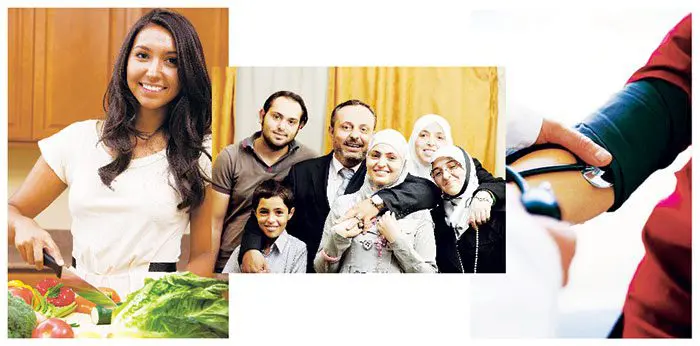
LANSING — A report by the state of Michigan released last week concluded that Arab Americans face specific health challenges, including lack of healthcare coverage and appropriate cancer screening.
Michigan is home to one of the largest Arab American populations nationwide. The Michigan Department of Health and Human Services (MDHHS) supported a stand-alone Arab Behavioral Risk Factor Survey (ABRFS) in 2013 among Arab and Chaldean populations in the state.
The department said the survey was a part of its “continued focus on reducing health disparities and improving the availability of data for racial and ethnic minorities.”
The full report, “Health Risk Behaviors among Arab Adults within the State of Michigan, 2013”, presents the results of the survey.
“Data from the 2013 survey provides important information needed to help develop effective and culturally appropriate programs and services for Michigan residents of Arab descent,” MDHHS said in a statement. “The 2013 ABRFS is the first state-wide survey to focus on adults of Arab descent in Michigan and provide state-specific, population-based estimates for various health behaviors, medical conditions and preventive health care practices.”
The report shows that for some of the health indicators, residents of Arab descent faced more challenges than other adults in Michigan, including no health care coverage for people 18 to 64 years of age, lack of health care access due to cost, worrying about having enough money to pay rent/mortgage and low levels of appropriate cancer screening.
In 2013, 25.3 percent of Arab adults reported not seeing a doctor within the past 12 months due to cost, significantly higher than the 15.5 percent reported by Michigan adults overall.
“The high prevalence of no insurance among Arabs combined with cultural and language differences can act as barriers to receiving appropriate and timely health care services,” the report reads.
For the majority of health indicators, adults of Arab descent had a similar experience compared to other adults in Michigan. Some of these included obesity, cigarette smoking, routine health checkup in the past year and reported diabetes and depression.
For a few of the health indicators, adults of Arab descent had a better experience than all other adults in Michigan, including low rates of alcohol consumption, never being told they have high blood pressure and never being told they have arthritis.
According to the report, an estimated 31.5 percent of Arab adults in Michigan reported some form of alcohol consumption within the past month, significantly lower than 56.6 percent of all Michigan adults. Furthermore, an estimated 8.4 percent of Arab adults reported binge drinking on at least one occasion in the past month, significantly lower than 18.9 percent of all adults in Michigan.
The survey was a collaborative effort with help from Michigan State University, Wayne State University, Saginaw Valley State University, and ACCESS.






Leave a Reply